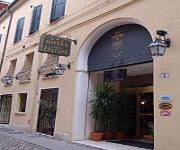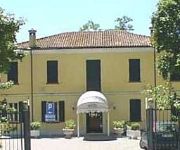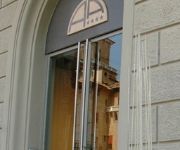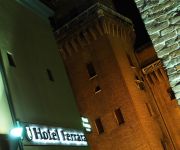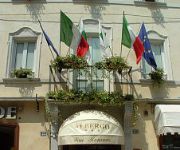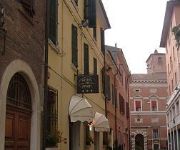Safety Score: 3,0 of 5.0 based on data from 9 authorites. Meaning we advice caution when travelling to Italy.
Travel warnings are updated daily. Source: Travel Warning Italy. Last Update: 2024-08-13 08:21:03
Discover Aguscello
Aguscello in Provincia di Ferrara (Emilia-Romagna) with it's 524 citizens is a city in Italy about 206 mi (or 331 km) north of Rome, the country's capital city.
Local time in Aguscello is now 07:27 AM (Friday). The local timezone is named Europe / Rome with an UTC offset of one hour. We know of 9 airports in the vicinity of Aguscello, of which 5 are larger airports. The closest airport in Italy is Bologna / Borgo Panigale Airport in a distance of 26 mi (or 42 km), South-West. Besides the airports, there are other travel options available (check left side).
There are several Unesco world heritage sites nearby. The closest heritage site in Italy is Ferrara, City of the Renaissance, and its Po Delta in a distance of 3 mi (or 5 km), North-West. Looking for a place to stay? we compiled a list of available hotels close to the map centre further down the page.
When in this area, you might want to pay a visit to some of the following locations: Ferrara, Voghiera, Canaro, Occhiobello and Masi-Torello. To further explore this place, just scroll down and browse the available info.
Local weather forecast
Todays Local Weather Conditions & Forecast: 7°C / 44 °F
| Morning Temperature | 5°C / 41 °F |
| Evening Temperature | 7°C / 45 °F |
| Night Temperature | 4°C / 39 °F |
| Chance of rainfall | 0% |
| Air Humidity | 63% |
| Air Pressure | 1001 hPa |
| Wind Speed | Moderate breeze with 12 km/h (7 mph) from East |
| Cloud Conditions | Broken clouds, covering 69% of sky |
| General Conditions | Light rain |
Saturday, 23rd of November 2024
7°C (45 °F)
5°C (40 °F)
Sky is clear, gentle breeze, clear sky.
Sunday, 24th of November 2024
8°C (46 °F)
6°C (43 °F)
Overcast clouds, light breeze.
Monday, 25th of November 2024
8°C (47 °F)
7°C (45 °F)
Overcast clouds, light breeze.
Hotels and Places to Stay
Corte Estense
Villa Regina
Annunziata
Ferrara
San Romano
Carlton
Touring
Santo Stefano
Europa
De Prati
Videos from this area
These are videos related to the place based on their proximity to this place.
PALIO di Ferrara edizione 2013 - Gare e corse in Piazza Ariostea - 26 maggio 2013
IL PALIO PIU' BELLO DI TUTTI I TEMPI L'ultima domenica di maggio Piazza Ariostea era gremita sino alla fine delle corse, compresa la gara dei cavalli terminata alle 20.15 a causa dell'attesa...
Itis copernico ferrara scherzo durante lezione di sistemi
Incredibile come il prof nn si accorga di nulla...delitto perfetto!!!
Ferrara Live 2014 - Speciale 3 - Una città di ponti
Speciale la Città che cambia - Una città di ponti.
Videos provided by Youtube are under the copyright of their owners.
Attractions and noteworthy things
Distances are based on the centre of the city/town and sightseeing location. This list contains brief abstracts about monuments, holiday activities, national parcs, museums, organisations and more from the area as well as interesting facts about the region itself. Where available, you'll find the corresponding homepage. Otherwise the related wikipedia article.
University of Ferrara
The University of Ferrara (Italian: Università degli Studi di Ferrara) is the main university of the city of Ferrara in the Emilia-Romagna region of northern Italy. In the years prior to the First World War the University of Ferrara, with more than 500 students, was the best attended of the free universities in Italy. Today there are approximately 12,000 students enrolled at the University of Ferrara with nearly 400 degrees granted each year.
Palazzo Schifanoia
Palazzo Schifanoia is a Renaissance palace in Ferrara, Emilia-Romagna built for the Este family. The name "Schifanoia" is thought to originate from "schivar la noia" meaning literally to "escape from boredom" which describes accurately the original intention of the palazzo and the other villas in close proximity where the Este court relaxed.
Saint George's Basilica (fuori le mura)
Saint George's Basilica is a Roman Catholic church in Ferrara, Italy. It is called San Giorgio fuori le mura in Italian meaning Saint George's "outside the walls" because it was built outside the city walls, while Saint George's Cathedral was within the city walls. It is the oldest church in the city. The history of the Basilica is closely linked with the origins of Ferrara.
Biblioteca Comunale Ariostea
The Biblioteca Comunale Ariostea is located in the Palazzo Paradise in Ferrara. It was named Ariostea because within lies the tomb of Ludovico Ariosto.
1570 Ferrara earthquake
The 1570 Ferrara earthquake was a major earthquake that struck the Italian city of Ferrara on November 16 and 17, 1570. After the initial shocks, an earthquake swarm continued for four years, with over 2000 aftershocks concentrated from November 1570 to February 1571. The same area was struck, centuries later, by another major earthquake of comparable intensity.
Sant'Antonio in Polesine
Sant'Antonio in Polesine is a Catholic monastic complex of the nuns of the Order of Saint Benedict located in Ferrara, Italy and dedicated to Anthony the Great. Administratively, it is part of the deanery of Ferrara, part of the Archdiocese of Ferrara-Comacchio. The name "in Polesine" does not refer to the area of Polesine, but to its original situation, high ground surrounded by water.
Oratorio dell'Annunziata, Ferrara
The oratorio dell'Annunziata (Oratory of the Virgin of the Annunciation), once called the Oratory of Sant'Apollinare or the Oratory of the Compagnia delle Morte, is found in via Borgo di Sotto 49 in Ferrara. The small church or oratory has a simple facade, designed by Aleotti, but the interior is elegantly decorated with majestic frescoes depicting the Story of the Cross by Camillo Filippi, il Bastianino, Niccolò Roselli and il Dielaì.
Santa Maria in Vado
Santa Maria in Vado is a church located on Via Brogovado number 3 in Ferrara, Italy. The church derives its name from a guado or fording (vado in dialect) that was located nearby. A church at the site was documented since the tenth century, but on Easter of 1171, a miracle occurred when blood spouted from the eucharist during consecration. This made the church an object of pilgrimage.


